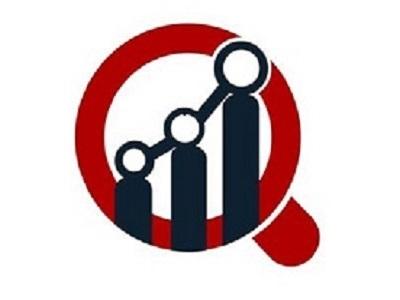Pharmaceutical Grade Lactose Market Highlights
Pharmaceutical grade lactose has been used as an excipient for more than a century. Because of its versatility, it is the backbone of many successful formulations. It is produced by concentrating whey or permeate (a co-product of whey protein concentrates production) to over-saturate the lactose, then removing, refining, drying, and milling the lactose crystals. Pharmaceutical grade lactose market is produced to meet rigid specifications, such as specific form and size distribution, monohydrate, crystalline, 40 mesh to 325 mesh, and a spray-dried mixture of crystalline and amorphous lactose for all applications.
The pharmaceutical grade lactose market size is projected to reach USD 183 Million by 2030 at 4.40 % CAGR during the forecast period 2022-2030.
Segment Analysis
The global pharmaceutical grade lactose market outlook has been segmented based on type, and application. The market, based on type, has been segmented into Crystalline Monohydrate Lactose, Inhalation Lactose, Granulated Lactose, Spray Dried Lactose, and others. Crystalline Monohydrate Lactose is further segmented into α-Lactose monohydrate, and β-Lactose (anhydrous lactose). Inhalation Lactose is further segmented into Sieved and Milled. The global pharmaceutical grade lactose market, by application, has been categorized as tablets manufacturing, capsule manufacturing, and others. Tablets manufacturing is further segmented into direct compression, wet granulation, and dry granulation. Capsule manufacturing is further segmented into capsules, sachets, and others.
Regional Analysis
Europe was the largest market for pharmaceutical grade lactose in 2019. Europe is anticipated to witness significant growth over the forecast period owing to the presence of a higher number of manufacturers and manufacturing associations in the region. For instance, key players headquartered in Europe include BASF Corporation, Merck KGaA, Kerry Inc., DFE Pharma, and others. The association of excipient manufacturers setting stringent norms and good manufacturing practices (GMP) are reasons for standardization of the manufacturing process. The norms and GMPs set forth by the International Pharmaceutical Excipients Council, Europe brings producers, distributors, and users of pharmaceutical excipients together in one place to share experiences and knowledge to learn and to lead the future of excipients. The IPEC Federation represents the five existing regional International Pharmaceutical Excipient Councils (IPECs) - IPEC-Americas, IPEC Europe, IPEC Japan, IPEC China, and IPEC India. EXCiPACT is a not-for-profit organization that develops and manages a high-quality certification scheme for producers, suppliers, and distributors of pharmaceutical excipients.
Asia-Pacific is the second-largest market for pharmaceutical grade lactose. According to the United Nations, across Asia, the number of people aged 65 and above is expected to grow dramatically over the next 50 years. For the region, the population in this age group will increase by 314% from 207 million in 2000 to 857 million in 2050. Research conducted by the World Bank estimated that the number of projected cases of COPD in China would be 42.5 million in 2020 and 55.2 million in 2030. According to research published in The Lancet, the number of cases of COPD in India increased from 28.1 million in 1990 to 55.3 million in 2016, an increase in prevalence from 3.3% to 4.2%.
Americas is the third-largest market for pharmaceutical grade lactose. This share is owing to the high prevalence of the population suffering from chronic obstructive pulmonary diseases (COPD). During 2018, approximately 9 million adults were diagnosed with chronic bronchitis in the US. COPD was the fourth leading cause of death in the US. According to the Canters for Disease Control and Prevention (CDC), more than 25 million Americans have asthma. The annual per-person incremental medical cost of asthma was USD 3,266 in 2015.
The market for pharmaceutical grade lactose is growing in the Middle East and Africa due to various reasons such as the high prevalence of COPD and the presence of distributors and subsidiaries in the region. DFE Pharma has its distributors located in Morocco, Algeria, South Africa, Egypt, Iran, and other countries in the Middle East. The BASF Group has been active on the African continent for close to 90 years. BASF employs around 1600 people in Africa. Since 2016, the BASF African headquarters is based in Nairobi, Kenya. Armor Pharma has its local partners situated in the region in nearly 20 countries.
Key Players
The Global Pharmaceutical Grade Lactose Market players are Kerry Inc. (Ireland), DFE Pharma (Germany), Meggle Excipients & Technology (Germany), Merck KGaA (Germany), Armor Pharma (France), ALPAVIT (Germany), BASF SE (Germany)
About Market Research Future:
At Market Research Future (MRFR), we enable our customers to unravel the complexity of various industries through our Cooked Research Report (CRR), Half-Cooked Research Reports (HCRR), & Consulting Services. MRFR team have supreme objective to provide the optimum quality market research and intelligence services to our clients.
Contact us:
Market Research Future (part of Wantstats Research and Media Private Limited),
99 Hudson Street, 5Th Floor,
New York, New York 10013
United States of America
+1 628 258 0071
Email: [email protected]

